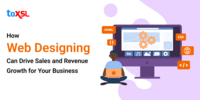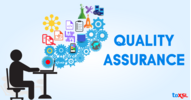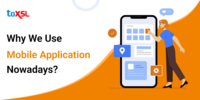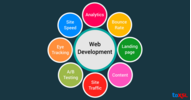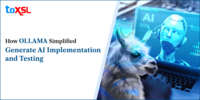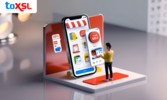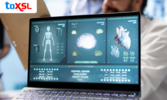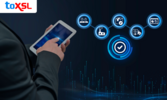- Dec 10, 2025
Share this post on:
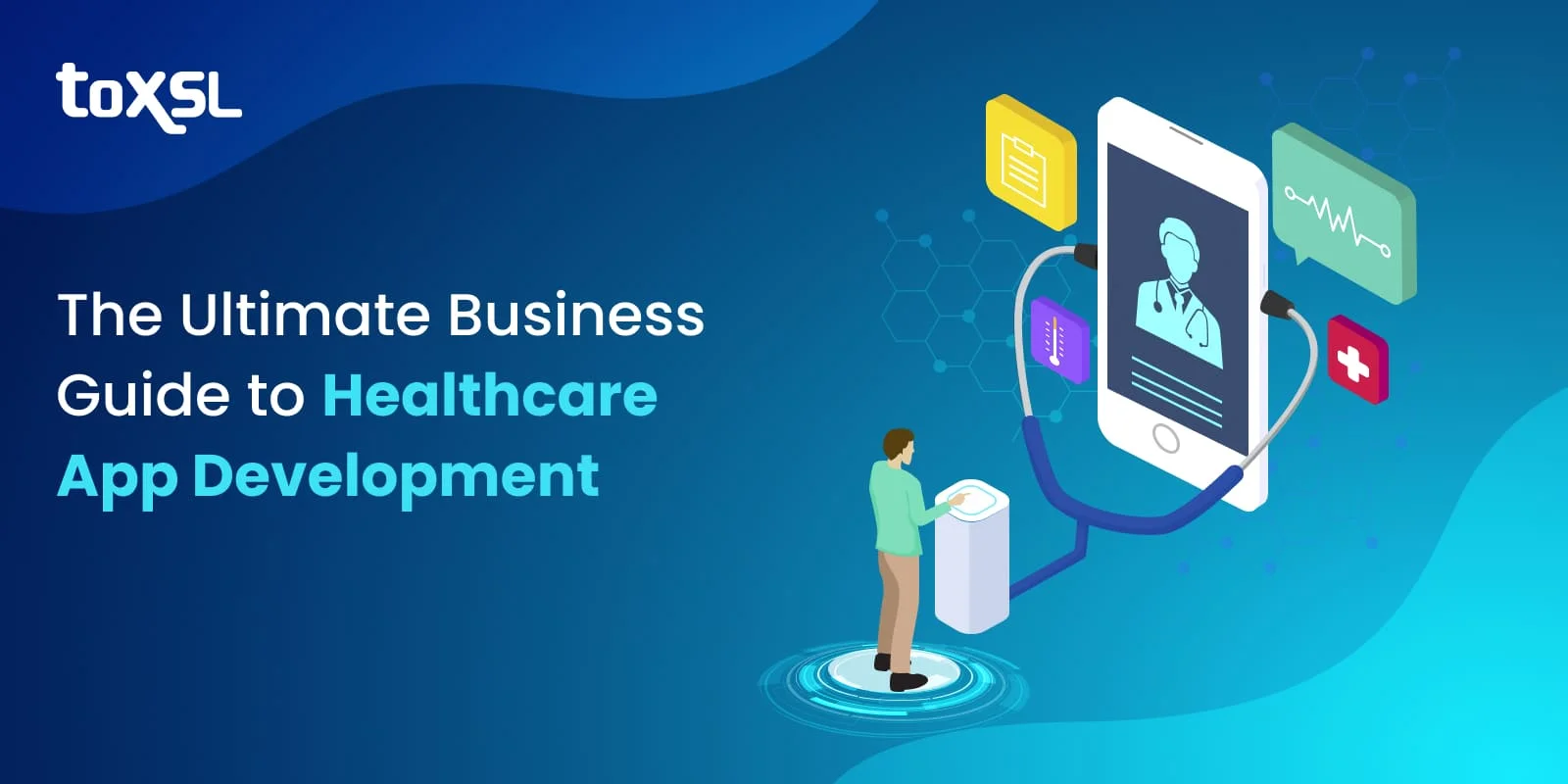
The healthcare market is projected to reach $85.95 billion by 2027, growing at a CAGR of 10.40%. With that, there can be a massive advancement in the number of users using healthcare solutions. Moreover, the digital health market should reach nearly 660 billion by 2025.
Technology is changing at a faster rate, and the healthcare industry has seen a significant transformation. One of the most notable advancements is the development of healthcare apps, which have revolutionized the way patients and healthcare professionals interact. Let us dive deep into the article and learn more about healthcare solutions.
Benefits of Healthcare Solutions
Healthcare app development solutions offer a wide range of benefits that improve overall efficiency in the healthcare system. Let us learn about the benefits of healthcare solutions
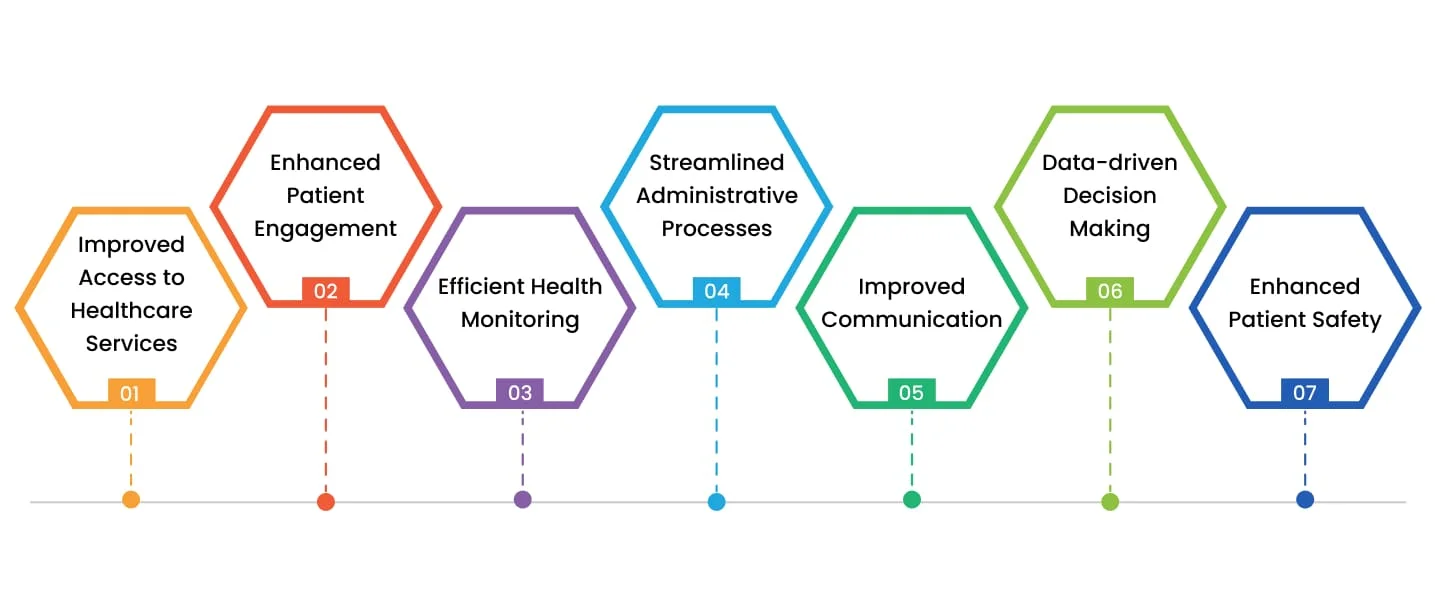
and how they are changing the face of medicine.
Improved Access to Healthcare Services: Healthcare apps provide users with easy access to healthcare services anytime and anywhere, seamlessly integrating with a Hospital Management System to enhance patient care. Patients can schedule appointments, access medical records, and communicate with healthcare providers through secure messaging systems. This eliminates the need for physical visits to hospitals or clinics, reducing waiting times and improving overall convenience for patients. Additionally, healthcare apps can connect patients with specialists remotely, enabling them to receive expert advice without the need for travel, ultimately improving accessibility and delivering a more patient-centric healthcare experience.
Enhanced Patient Engagement: These solutions empower patients to take an active role in managing their health. These apps offer features such as medication reminders, symptom trackers, and personalized health tips that encourage users to adopt healthier lifestyles and adhere to treatment plans. By providing patients with relevant information and tools, healthcare apps promote self-care and enable individuals to make informed decisions about their well-being.
Efficient Health Monitoring: Healthcare app development solutions have paved the way for remote patient monitoring (RPM), which allows healthcare providers to track patients' vital signs and health data in real time. RPM enables early detection of potential health issues, facilitates timely interventions, and reduces hospital readmissions. For instance, wearable devices integrated with healthcare apps can monitor heart rate, blood pressure, sleep patterns, and physical activity levels. This data can be shared securely with healthcare professionals, who can then provide personalized recommendations based on the individual's health status.
Streamlined Administrative Processes: Streamline administrative tasks for both patients and healthcare providers using healthcare apps. Patients can use these apps to complete registration forms, update personal information, and access insurance details. This reduces paperwork and administrative burdens for healthcare facilities, allowing staff to focus more on patient care. Additionally, healthcare apps can automate appointment reminders, prescription refills, and billing processes, minimizing errors and improving overall efficiency.
Improved Communication: Healthcare apps facilitate seamless communication and collaboration between patients, healthcare providers, and caregivers. Through secure messaging systems, patients can ask questions, seek clarification on treatment plans, and receive prompt responses from healthcare professionals. Moreover, healthcare apps enable healthcare providers to share test results, medical reports, and treatment plans with patients in a secure manner. This enhances transparency and fosters a collaborative approach to healthcare delivery.
Data-driven Decision Making: Generate a vast amount of data that can be analyzed to derive valuable insights using apps. By leveraging data analytics tools, healthcare providers can identify trends, patterns, and correlations in patient health records. This information can be used to improve diagnoses, develop personalized treatment plans, and enhance population health management strategies. Data-driven decision-making also enables healthcare organizations to optimize resource allocation, reduce costs, and improve overall operational efficiency.
Enhanced Patient Safety: Healthcare apps contribute to improved patient safety by reducing the risk of medication errors and adverse events. These apps can provide medication reminders, drug interaction alerts, and dosage instructions to ensure patients take their medications correctly. Furthermore, healthcare apps can integrate with electronic health records (EHRs) to provide healthcare professionals with up-to-date patient information, including allergies, medical history, and previous treatments. This comprehensive view of the patient's health status helps prevent medical errors and ensures safer care delivery.
New-Generation Features in Healthcare Apps
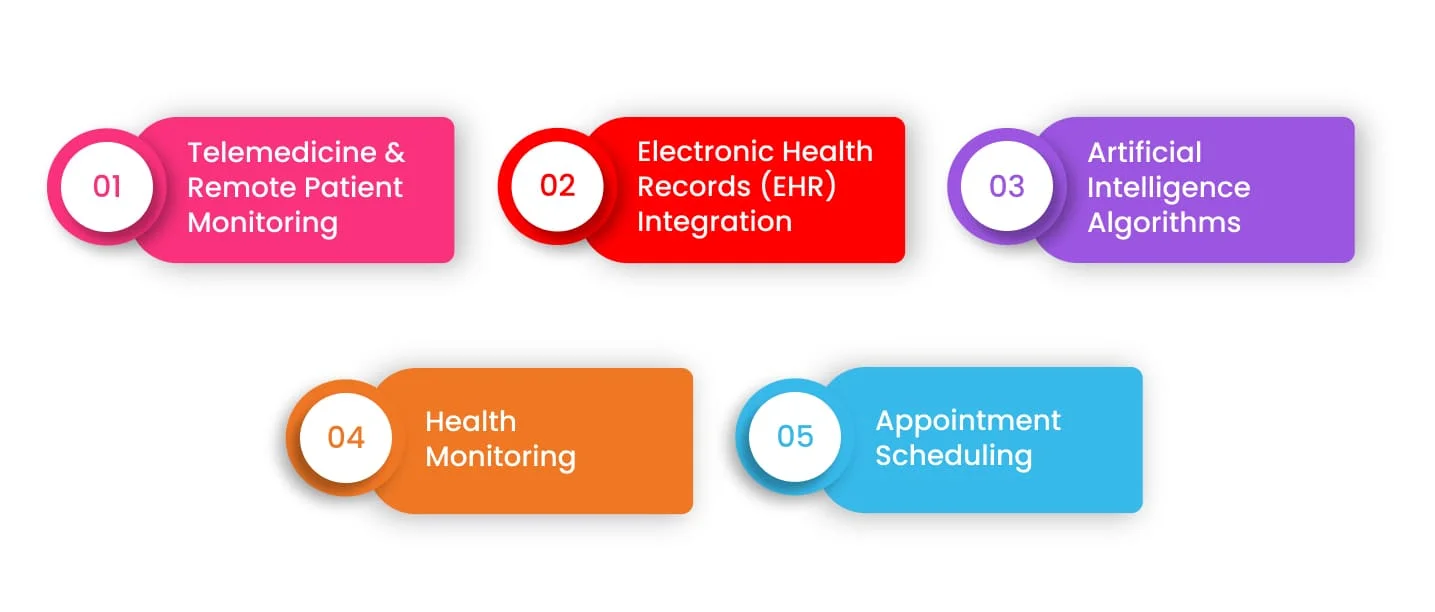
As we have discussed earlier, the healthcare industry has witnessed a significant transformation with the integration of technology into various aspects of patient care. One notable advancement is the development of new-generation features in healthcare applications. These features have revolutionized the way healthcare professionals and patients interact, improving efficiency, accessibility, and overall quality of care. In this article, we will explore some of the key new-generation features that have emerged in healthcare applications.
Telemedicine and Remote Patient Monitoring
Telemedicine has gained immense popularity in recent years, especially with the COVID-19 pandemic highlighting the need for remote healthcare services. Healthcare applications now offer telemedicine capabilities, allowing patients to consult with healthcare professionals remotely through video calls or chat platforms. This feature enables patients to receive medical advice, prescriptions, and follow-up care without physically visiting a clinic or hospital.
Additionally, remote patient monitoring has become an integral part of healthcare applications. With the help of wearable devices and sensors, patients can track their vital signs, such as heart rate, blood pressure, glucose levels, and more. These data are then transmitted to healthcare providers in real-time, enabling them to monitor patients' health conditions remotely and intervene when necessary. Remote patient monitoring not only improves patient outcomes but also reduces hospital readmissions and lowers healthcare costs.
Electronic Health Records (EHR) Integration
Electronic Health Records (EHR) integration is another essential feature in modern healthcare applications. EHRs contain comprehensive patient information such as medical history, diagnoses, medications, allergies, and laboratory results. By integrating EHRs into healthcare applications, healthcare providers can access up-to-date patient information seamlessly.
This integration allows for better coordination among the different healthcare providers involved in a patient's care. For example, if a primary care physician refers a patient to a specialist, both physicians can access the same EHR system to review the patient's medical history and collaborate on treatment plans. EHR integration reduces medical errors, improves care coordination, and enhances patient safety, while also helping your team work more efficiently. Healthcare consultants can optimize this setup to ensure smoother implementation and better patient outcomes.
Artificial Intelligence Algorithms
Artificial Intelligence and Machine Learning algorithms have made significant advancements in healthcare applications. These technologies can analyze vast amounts of patient data to provide valuable insights and support clinical decision-making. AI-powered healthcare applications can assist in diagnosing diseases by analyzing symptoms, medical images, and laboratory results. Furthermore, AI and ML algorithms can help personalize treatment plans by considering individual patient characteristics, such as genetics, lifestyle factors, and treatment response patterns.
Health Monitoring
Healthcare applications now offer features that allow users to monitor their overall health and wellness. These applications often include functionalities such as step tracking, calorie counting, sleep monitoring, stress management, and mindfulness exercises. By tracking these metrics, individuals can gain insights into their lifestyle habits and make informed decisions to improve their overall well-being.
Some healthcare applications also provide personalized recommendations based on the collected data. For instance, if an individual's sleep patterns indicate poor quality sleep, the application may suggest strategies for improving sleep hygiene or recommend consulting a sleep specialist if necessary.
Appointment Scheduling
Appointment scheduling is a crucial aspect of healthcare management. New-generation healthcare applications offer features that allow patients to schedule appointments with healthcare providers conveniently. These applications often provide real-time availability information, enabling patients to choose a suitable time slot without the need for phone calls or waiting on hold. Also, medication reminders are integrated into healthcare applications to help patients adhere to their prescribed treatment plans.
To Summarize:-
In conclusion, healthcare app development solutions offer numerous ways to transform the way healthcare is delivered. From improved access to healthcare services and enhanced patient engagement to streamlined administrative processes and data-driven decision-making, these apps have the potential to revolutionize the healthcare industry. By harnessing the power of technology, healthcare apps empower patients, improve efficiency, and ultimately contribute to better health outcomes.
So, if you are looking to enhance your business in the healthcare domain, it is advisable to opt for healthcare app solutions. Contact us to learn more about how our healthcare solutions can help you grow.
FAQ's
Q1. Who can benefit from developing a healthcare app?
Healthcare apps are beneficial for a wide range of professionals and organizations in the medical industry. Hospitals, private clinics, individual doctors, pharmacies, fitness centers, and even healthcare startups can use these apps to provide better services. They help improve patient engagement, reduce manual work, streamline appointments, and offer remote access to healthcare. Businesses can also reach a wider audience and improve their brand visibility by going digital.
Q2. What are the different types of healthcare apps?
There are several types of healthcare apps, each serving a unique purpose. Telemedicine apps allow patients to consult doctors online via video calls. Fitness and wellness apps help users track physical activity, diet, and mental health. Some apps are designed to manage medical records, allowing easy access to patient history. Others focus on online pharmacy services, enabling users to order medicines from their phones. Depending on your business goals, you can choose the type that fits best or combine features for a complete solution.
Q3. What challenges should businesses expect during healthcare app development?
Developing a healthcare app involves certain challenges, especially when it comes to following healthcare regulations and ensuring data privacy. Apps must comply with standards like HIPAA or GDPR to protect sensitive medical information. Businesses also need to make sure the app is user-friendly, secure, and compatible with different devices. Choosing the right technology, planning proper integration, and maintaining performance under heavy data loads are some other common challenges. However, with the right development partner, these challenges can be managed effectively.
Q4. Why should I choose a custom healthcare app over a ready-made solution?
A custom healthcare app offers greater flexibility, allowing you to build features tailored to your specific business needs. Unlike ready-made solutions, which often have limited functionality and less room for growth, custom apps can be designed to match your brand, workflow, and future plans. You can also ensure stronger security, better performance, and an improved user experience. Investing in a custom solution also gives you full control over updates, integrations, and scalability as your business grows.



